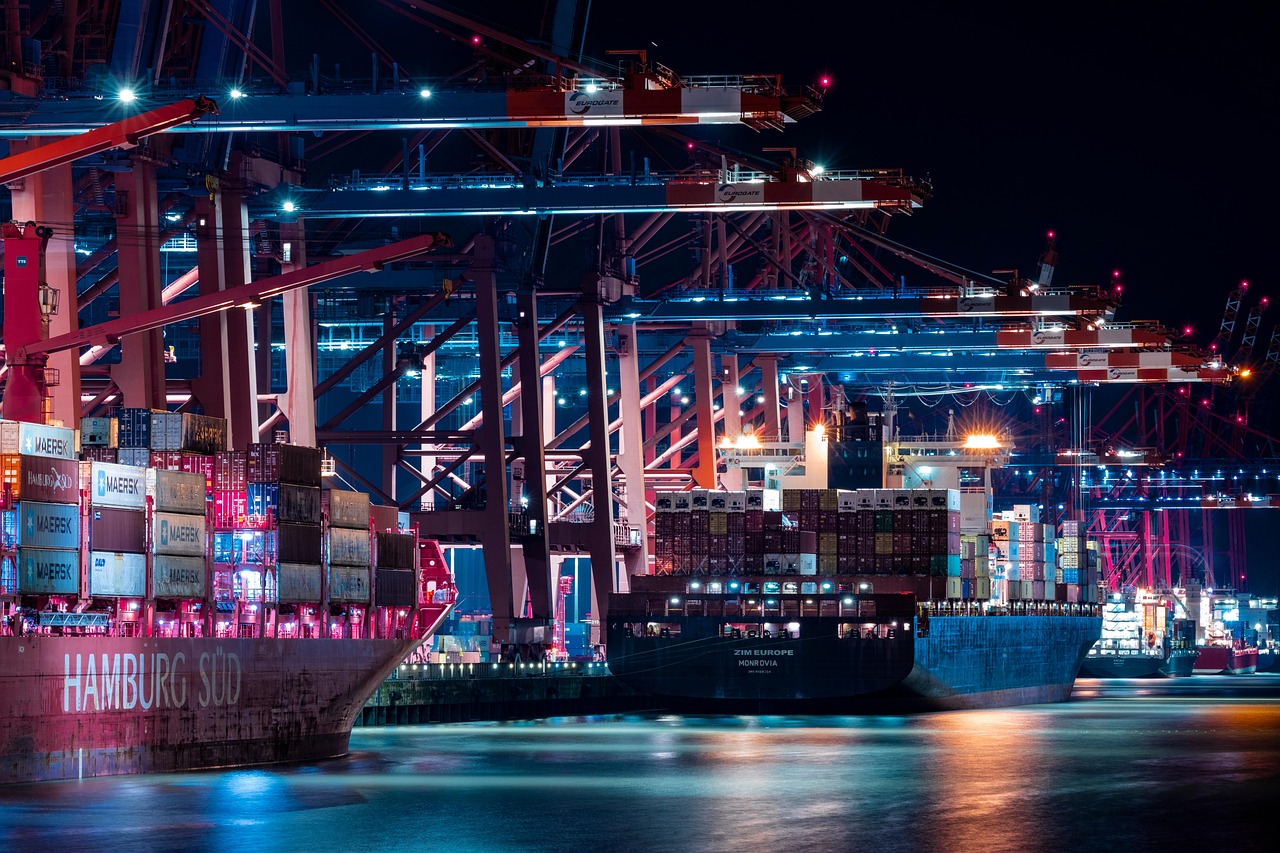Finding the perfect logistics partner can feel like searching for a needle in a haystack. You need a company that understands your business, can handle your specific shipping needs, and, most importantly, can deliver on its promises. A reliable logistics partner isn’t just a vendor; it’s an extension of your business, directly impacting your efficiency, customer satisfaction, and bottom line. Let’s delve into what makes a good logistics partner and how to find the right one for you.
What is a Logistics Partner?
Defining the Role
A logistics partner, often referred to as a third-party logistics (3PL) provider, is a company that provides outsourced logistics services for part or all of their supply chain management functions. This encompasses a wide range of services, from warehousing and transportation to inventory management and order fulfillment. Essentially, they handle the movement and storage of goods on your behalf.
Scope of Services
The services offered by logistics partners can vary greatly, depending on their capabilities and your specific needs. Common services include:
- Transportation: This covers everything from freight forwarding and trucking to air and ocean freight.
- Warehousing: Providing secure storage for your inventory, including temperature-controlled options if needed.
- Inventory Management: Optimizing inventory levels, tracking stock movements, and minimizing holding costs.
- Order Fulfillment: Picking, packing, and shipping orders directly to your customers.
- Customs Brokerage: Handling the complexities of international shipping, including customs clearance and documentation.
- Supply Chain Consulting: Offering expertise and insights to improve your overall supply chain efficiency.
- Reverse Logistics: Managing returns and repairs efficiently.
Examples of Logistics Partner Contributions
Imagine an e-commerce company experiencing rapid growth. Instead of investing heavily in warehouse space and hiring more staff to handle order fulfillment, they can partner with a 3PL provider. The 3PL can manage the entire fulfillment process, allowing the company to focus on its core competencies, such as product development and marketing. Another example is a manufacturing company that needs to transport raw materials from multiple suppliers to its factory. A logistics partner can consolidate these shipments, negotiate better rates with carriers, and ensure timely delivery.
Benefits of Partnering with a Logistics Provider
Cost Reduction
One of the primary reasons companies partner with logistics providers is to reduce costs.
- Economies of Scale: 3PLs often have significant buying power, allowing them to negotiate lower rates with carriers and other service providers.
- Reduced Capital Investment: Outsourcing logistics eliminates the need to invest in warehouse space, transportation equipment, and technology.
- Variable Costs: You only pay for the services you use, which can be particularly beneficial during periods of fluctuating demand.
Increased Efficiency and Expertise
Logistics providers specialize in supply chain management, bringing expertise and technology to your operation that you may not have in-house.
- Improved Order Accuracy: Leveraging advanced warehouse management systems (WMS) minimizes errors in order fulfillment.
- Faster Delivery Times: Optimized routing and streamlined processes ensure quicker delivery times, enhancing customer satisfaction.
- Access to Technology: 3PLs invest in cutting-edge technology, such as transportation management systems (TMS) and warehouse automation, which can improve efficiency and visibility.
Focus on Core Competencies
By outsourcing logistics, you can free up internal resources to focus on your core business activities, such as product development, sales, and marketing.
- Strategic Growth: Allows your team to concentrate on strategic initiatives that drive growth and innovation.
- Improved Customer Service: With efficient order fulfillment and delivery, you can enhance customer satisfaction and build brand loyalty.
- Reduced Operational Burden: Offloading logistical tasks reduces the burden on your internal team, allowing them to be more productive.
Global Reach and Scalability
Logistics partners can help you expand your business into new markets and scale your operations as needed.
- International Shipping Expertise: They can navigate the complexities of international shipping, including customs regulations and documentation.
- Network of Warehouses and Transportation Providers: 3PLs have established networks that enable them to reach customers around the world.
- Flexible Capacity: They can easily scale their services up or down to accommodate changes in demand.
How to Choose the Right Logistics Partner
Define Your Needs
Before you start searching for a logistics partner, it’s crucial to clearly define your needs and objectives.
- Identify Your Pain Points: What are the biggest challenges you’re facing in your supply chain?
- Set Clear Goals: What do you hope to achieve by partnering with a 3PL?
- Determine Your Budget: How much are you willing to spend on logistics services?
Research and Evaluate Potential Partners
Once you know what you’re looking for, you can start researching potential partners.
- Online Research: Use search engines and industry directories to identify 3PL providers that specialize in your industry and offer the services you need.
- Check References: Ask for references from other clients and contact them to learn about their experience.
- Request Proposals: Request proposals from several providers and compare their offerings, pricing, and service levels.
- Visit Their Facilities: If possible, visit their warehouses and distribution centers to assess their operations and technology.
Key Factors to Consider
When evaluating potential logistics partners, consider the following factors:
- Industry Experience: Do they have experience working with companies in your industry?
- Geographic Coverage: Can they reach your target markets?
- Technology Capabilities: Do they have the technology to meet your needs, such as a WMS and TMS?
- Customer Service: Are they responsive and easy to work with?
- Financial Stability: Are they financially stable and able to invest in their business?
- Scalability: Can they scale their services to meet your growing needs?
- Sustainability Initiatives: Are they committed to environmentally friendly practices?
Negotiate a Contract
Once you’ve chosen a logistics partner, it’s important to negotiate a contract that clearly outlines the terms of your agreement.
- Service Level Agreements (SLAs): Define key performance indicators (KPIs) and service levels, such as order accuracy, on-time delivery, and response time.
- Pricing Structure: Clarify the pricing structure and any potential fees.
- Liability and Insurance: Determine who is responsible for losses or damages during transit or storage.
- Termination Clause: Include a termination clause that allows you to end the agreement if necessary.
Common Mistakes to Avoid
Lack of Clear Communication
Effective communication is essential for a successful partnership. Establish clear lines of communication and schedule regular meetings to discuss performance and address any issues.
- Designated Point of Contact: Having a dedicated account manager can streamline communication and ensure that your needs are addressed promptly.
- Regular Performance Reviews: Review key performance indicators (KPIs) regularly to track progress and identify areas for improvement.
Ignoring Culture Fit
Partnering with a logistics provider is a long-term relationship, so it’s important to find a company that aligns with your values and culture.
- Shared Values: Look for a provider that shares your commitment to customer service, quality, and innovation.
- Collaborative Approach: Choose a provider that is willing to work collaboratively with you to achieve your goals.
Focusing Solely on Price
While price is an important factor, it shouldn’t be the only consideration. Choosing the cheapest provider may save you money in the short term, but it could lead to poor service and higher costs in the long run.
- Value for Money: Focus on finding a provider that offers the best value for your money, considering factors such as service quality, technology, and expertise.
- Hidden Fees: Be sure to ask about any potential hidden fees or surcharges.
Neglecting Data Security
Data security is a growing concern, so it’s important to ensure that your logistics partner has robust security measures in place to protect your sensitive data.
- Data Encryption: Ensure that your data is encrypted both in transit and at rest.
- Access Controls: Implement strict access controls to limit who can access your data.
- Regular Security Audits: Conduct regular security audits to identify and address any vulnerabilities.
Conclusion
Choosing the right logistics partner is a critical decision that can have a significant impact on your business. By understanding your needs, researching potential partners, and carefully evaluating their capabilities, you can find a provider that can help you reduce costs, improve efficiency, and focus on your core competencies. Remember to prioritize clear communication, cultural fit, and data security to ensure a successful and long-lasting partnership. Investing the time and effort into finding the right logistics partner is an investment in the future success of your business.




